Gratitude is an immensely powerful force that we can use in the most simple of ways to expand our happiness and cultivate loving relationships, it can even improve our health, both mental and physical.
I am so excited to share the Power of Gratitude. The very many powerful health benefits to a regular gratitude practice along with some tips and thoughts on how to cultivate a grateful heart, plus if you scroll to further down, I’m even offering a free download of a Gratitude Journal worksheet you can use daily, as part of your practice.
I invite you to explore ways to support living gratefully as a way of life, not simply something we celebrate once a year.
A Grateful Day
I first shared with you this beautiful meditation from Brother David Steindl-Rast, a few years back (and probably many times since), I post on my social pages at least every Thanksgiving and I still get chills. Every time I listen. I first heard it at the end of a yoga class taught by a friend in Upstate New York. In savasana. As I lay there on my back, arms outstretched, heart wide open, sobbing on my yoga mat, tears rolling down my face, it was pure emotion overcoming me. I will never forget leaving the studio that day filled up with the reminder of what truly matters, with the invite to notice the beautiful offerings of everyday life. I walked to my car looking at the sky with a brand new sense of wonder. Appreciating the smiles and eyes of strangers in a deeper much more meaningful way.
“Let the gratefulness overflow into blessing, all around you. Then it will really be a good day.”
The Power of Gratitude
The word gratitude is derived from the Latin word gratia, which means grace, graciousness, or gratefulness (depending on the context). In some ways gratitude encompasses all of these meanings. Gratitude is a thankful appreciation for what an individual receives, whether tangible or intangible. With gratitude, people acknowledge the goodness in their lives. In the process, people usually recognize that the source of that goodness lies at least partially outside themselves. As a result, gratitude also helps people connect to something larger than themselves as individuals — whether to other people, nature, or a higher power.
There have been countless scientific studies and research from renowned psychologists that have found people who maintain a regular gratitude practice or simply consciously focus on cultivating gratitude in daily life, experience a much greater quality of emotional well-being and physical health than those who do not. Studies have consistently found that people who practice gratitude report fewer symptoms of illness, including depression, more optimism and happiness, stronger relationships, more generous behavior, and many other benefits. 1https://www.health.harvard.edu/newsletter_article/in-praise-of-gratitude
Benefits of Gratitude:
- Gratitude improves physical health. In an experimental comparison, those who kept gratitude journals on a weekly basis exercised more regularly, reported fewer physical symptoms, felt better about their lives as a whole, and were more optimistic about the upcoming week compared to those who recorded hassles or neutral life events (Emmons & McCullough, 2003). Grateful people experience fewer aches and pains and they report feeling healthier than other people, according to a 2012 study published in Personality and Individual Differences.
- Gratitude enhances empathy and reduces aggression. Grateful people are more likely to behave in a prosocial manner, even when others behave less kind, according to a 2012 study by the University of Kentucky. Study participants who ranked higher on gratitude scales were less likely to retaliate against others, even when given negative feedback. They experienced more sensitivity and empathy toward other people and a decreased desire to seek revenge.
- Gratitude can improve relationships. A study of couples found that individuals who took time to express gratitude for their partner not only felt more positive toward the other person but also felt more comfortable expressing concerns about their relationship.
- Gratitude improves personal goal attainment and self-esteem. A related benefit was observed in the realm of personal goal attainment: Participants who kept gratitude lists were more likely to have made progress toward important personal goals (academic, interpersonal and health-based) over a two-month period compared to subjects in the other experimental conditions. A 2014 study published in the Journal of Applied Sport Psychology found that gratitude increased self-esteem in athletes, which is an essential component to optimal performance. Other studies have shown that gratitude reduces social comparisons. Rather than becoming resentful toward people who have more money or better jobs – which is a major factor in reduced self-esteem- grateful people are able to appreciate other people’s accomplishments.
- Gratitude opens relationship doors, allows us to feel more connected and encourages new opportunities. According to a 2104 study published in Emotion it was found that thanking a new acquaintance makes them more likely to seek an ongoing relationship. So whether you thank a stranger for holding the door or you send a quick thank-you note to that co-worker who helped you with a project, acknowledging other people’s contributions can lead to new opportunities.
- Grateful people are generous and more likely to help others. Participants in the daily gratitude condition were more likely to report having helped someone with a personal problem or having offered emotional support to another, relative to the hassles or social comparison condition.
- Gratitude improves psychological health. A daily gratitude intervention (self-guided exercises) with young adults resulted in higher reported levels of the positive states of alertness, enthusiasm, determination, attentiveness and energy compared to a focus on hassles or a downward social comparison (ways in which participants thought they were better off than others). There was no difference in levels of unpleasant emotions reported in the three groups.
- Grateful people sleep better. Multiple studies have shown that spending just 15 minutes writing down several sentiments of gratitude before bed, may improve sleep duration and sleep quality..
Gratitude Measured:
From research conducted by Emmons Lab in a long-term project designed to create and disseminate a large body of novel scientific data on the nature of gratitude, its causes, and its potential consequences for human health and well-being.2http://emmons.faculty.ucdavis.edu/measuring-gratitude/
- Well-Being: Grateful people report higher levels of positive emotions, life satisfaction, vitality, optimism and lower levels of depression and stress. The disposition toward gratitude appears to enhance pleasant feeling states more than it diminishes unpleasant emotions. Grateful people do not deny or ignore the negative aspects of life.
- Prosociality: People with a strong disposition toward gratitude have the capacity to be empathic and to take the perspective of others. They are rated as more generous and more helpful by people in their social networks (McCullough, Emmons, & Tsang, 2002).
- Spirituality: Those who regularly attend religious services and engage in religious activities such as prayer reading religious material score are more likely to be grateful. Grateful people are more likely to acknowledge a belief in the interconnectedness of all life and a commitment to and responsibility to others (McCullough et. al., 2002). Gratitude does not require religious faith, but faith enhances the ability to be grateful.
- Materialism: Grateful individuals place less importance on material goods; they are less likely to judge their own and others success in terms of possessions accumulated; they are less envious of others; and are more likely to share their possessions with others relative to less grateful persons.
Ways to Cultivate Gratitude:
Gratitude is the most wonderful way to focus on what we have, rather than what we lack. Regularly practicing gratitude can help us to appreciate what we have rather than always seeking for something “more” or something “new” in the hopes of increased happiness when a new level of physical or emotional needs are met. Like anything else, this is a practice that has to be cultivated and exercised regularly for it to grow stronger. Beyond simply counting our blessings every chance we get, there are a million and one various possible approaches to grateful living in our daily life – find the practices which will best suit your personal lifestyle, needs, and preferences and start reaping the benefits.
Keep a Gratitude Journal
As you write in your gratitude journal, try to challenge yourself to not write things you wrote about in previous days — this will make you look more deeply at all the little things that enhance your life and continuously you joy … a warm home to sleep in, a pantry full of food, your favorite movie, a call or text from a friend, your health, the running water in your home, the air you breathe, a kiss.
You can write in your journal just before bed, first thing when wake up in the morning, or just before you meditate or pray. The time of day isn’t important; what is important is that you consistently take a few moments to consciously focus your mind on your blessings. Commit to keeping a journal for 30 days. What we positively focus our attention on expands in our life. By offering gratitude for all the goodness we experience, we’re inviting the universe to give us more and more of what we seek. Download your FREE Gratitude Journal Worksheet below. Print out a bunch of copies and start writing.
Write a Thank You Letter
A thoughtful, heartfelt letter of gratitude written to someone to properly thank them, can not only boost your own sense of gratefulness but it can also strengthen your bond with them. Deliver it yourself or drop it in the mail. Once in a while, write yourself a thank you note! You deserve it.
Thank Someone Mentally
If contacting someone you want to express gratitude to or for, isn’t possible, take a moment to think of someone who has done something nice for you, supported you and been there for you, and thank them mentally.
Meditate / Pray
Whatever your modality or practice, religious denomination or not, find space in solitude to cultivate gratitude.
Engage in a Meaningful Ritual
Gratitude walk – Just 20 mins through the neighborhood, in a local park, the woods, the city, a beach or anywhere in nature or even just around your office or home. As you consciously take each step, focus on the many things for which you are grateful. Notice positive things, a beautiful tree, a smile from a stranger, take it in and acknowledge what you enjoy about it. Take time to reflect on your life. You home, the nurturing relationships from people that support you, the many comforts in your life, both material and emotional, the amazing body that allows you to walk, take in and experience the world, your mind that brings the ability for you to understand yourself and others. As you walk, take it slow. Pause take in a breath and be grateful for the air filling your body with life. Acknowledge what you are feeling, the sights, sounds, smells and tastes and discover how many things you can be grateful for. This is a beautiful practice to truly appreciate the abundance always surrounding you and by alternative routes discover new things to admire.
Light a Candle – Lighting candles can be sacred ritual. We light a candle for many purposes: to illuminate darkness, dedicate prayers, solidify intentions, offer blessings, evoke Spirit, and/or to nourish grateful living. The practice of lighting a candle; connecting you to inner stillness and to a global community. Feel this connectedness. Slow your pace and offer these moments your full attention. 3http://gratefulness.org/light-a-candle/ You can even light a candle virtually.
FREE GRATITUDE JOURNAL DOWNLOAD
Click the image below or this link here to download your FREE PDF download of this Gratitude Journal. Print enough copies to practice for 30 days and take note of how your mood changes as your practice evolves. Feel free to share.
CHECK OUT THIS POST FOR HOW TO CREATE A DAIY GRATITUDE PRACTICE.
Additional Resources:
– Greater Good website at Berkeley
– Gratitude, A Way of Teaching, Owen M. Griffith
References
| 1. | ↑ | https://www.health.harvard.edu/newsletter_article/in-praise-of-gratitude |
| 2. | ↑ | http://emmons.faculty.ucdavis.edu/measuring-gratitude/ |
| 3. | ↑ | http://gratefulness.org/light-a-candle/ |

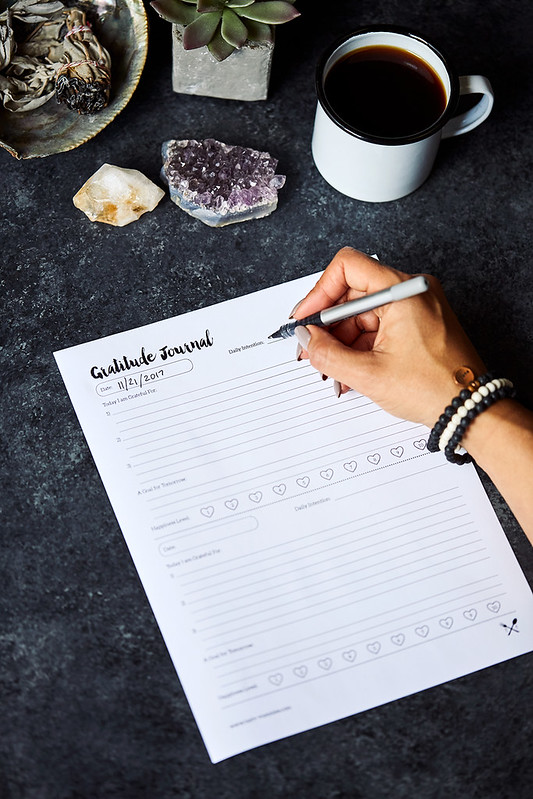
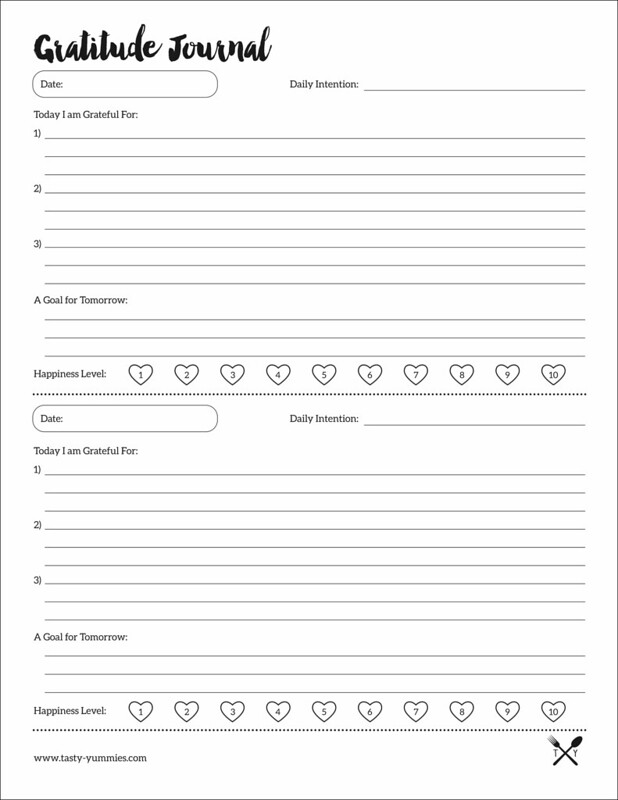




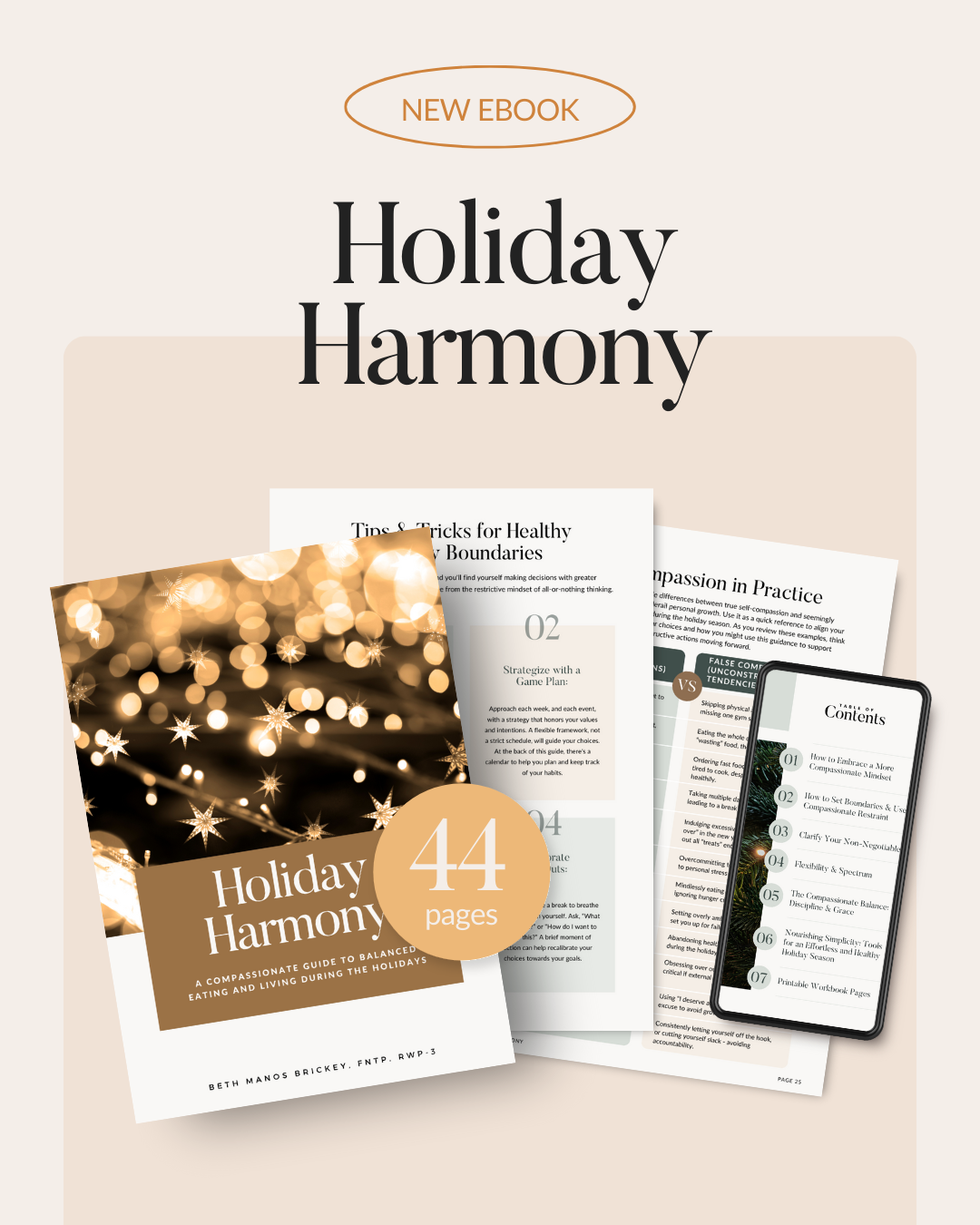

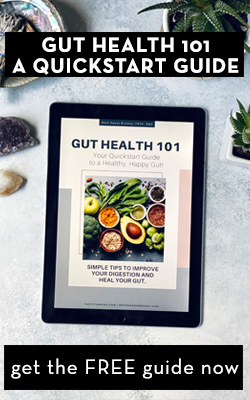
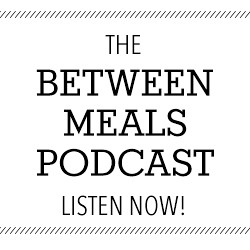



2 Responses
Thank you so much for sharing Beth! Happy Thanksgiving
Thanks for the template !